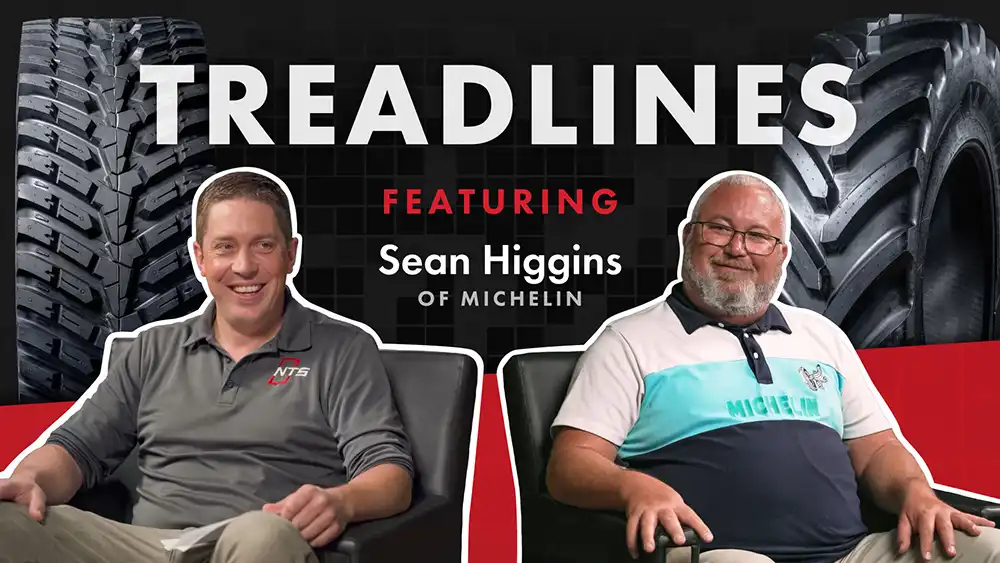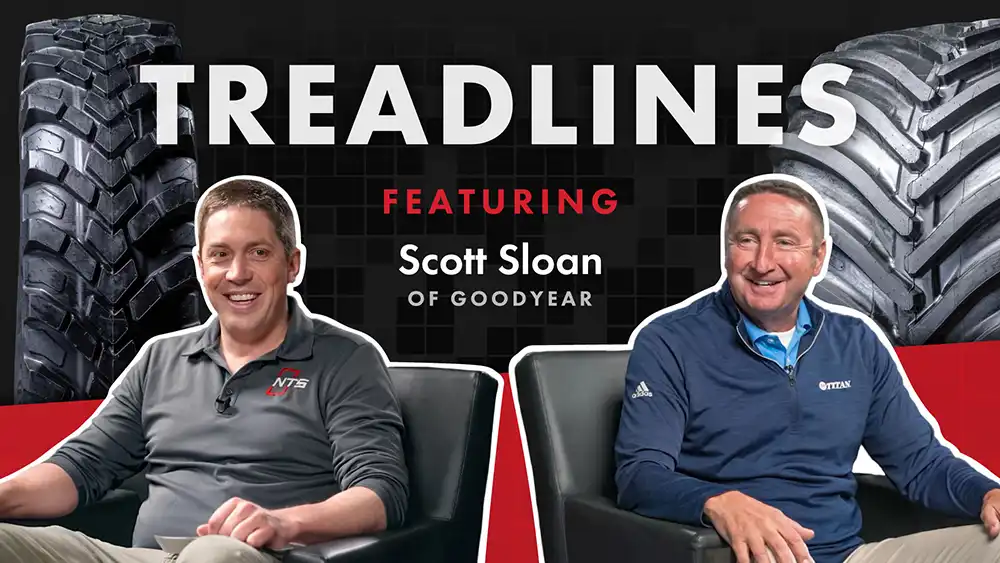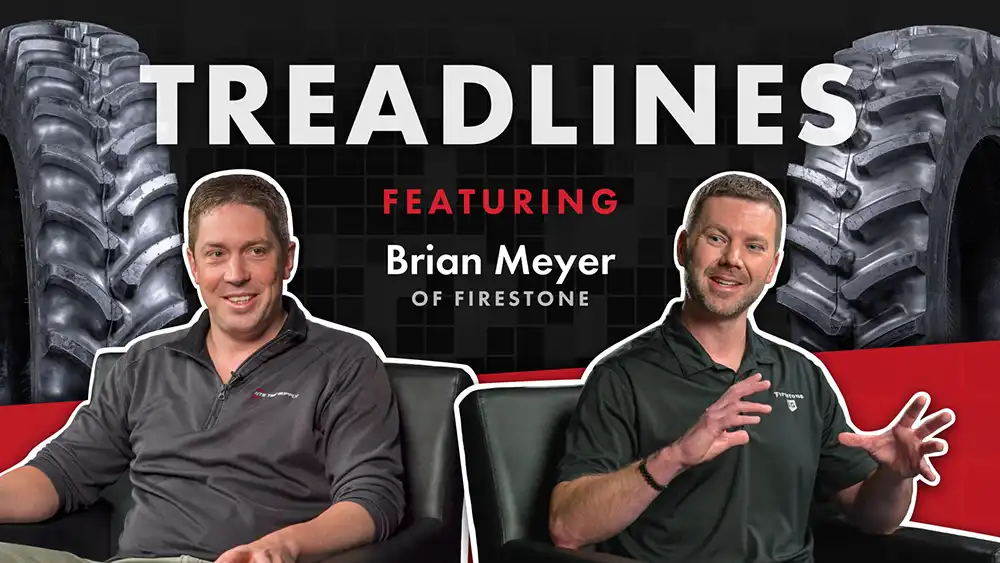In order to operate efficiently, it’s vital that you have the right tire pressure on your equipment for your specific conditions and implements.

How important is tire pressure? Get it wrong, and you may be losing yield due to increased compaction. Or, your fuel economy may be slipping due to excessive power hop, road lope, or your tires sinking into the soil.
That’s why it’s important to check the tire pressure often on your equipment, including every time you switch over to a new job or implement. Overinflated tires cause more compaction (and yield loss), decrease traction, and burn more fuel. Underinflated tires may be soon be ruined tires, especially if you’re traveling down the road on them.
In order to operate efficiently, it’s vital that you set up the tires on your equipment for your specific conditions and implements. In addition to checking your tire pressure often, you may benefit from investing in one or more of the following technologies to help you reduce compaction in 2019 and beyond.
Increased Flex (IF) and Very High Flex (VF) Tires
How can these categories of tires help your business? A bigger footprint increases flotation, which decreases compaction. Increased Flex (IF) tires can carry 20 percent more load at a standard radial’s inflation pressure. Or they can carry the same load (as a standard radial) at 20 percent less inflation pressure. Very High Flex (VF) tires can carry 40 percent more load at a standard radial’s inflation pressure—or the same load (as a standard tire) at 40 percent less pressure.
For example, a Firestone IF 280/70R15 Destination Farm 128D implement tire has a 40 percent larger footprint than a standard 11L-15 Highway Special LR F. From tractors to implements, IF and VF tires are suitable for nearly every application.
Tire Inflation Systems
Two factors determine optimum tire pressure: speed and weight. Sound simple? Nothing in agriculture is ever simple. Let’s say that 7 psi is the ideal tire pressure for your 4WD as you work over a field. In the field, that may give you the most traction, least compaction, and the best shot at topping the fuel economy of a tugboat. But what happens when you have to transport home for the night? Running down the road with that same 7 psi will likely ruin twenty thousand dollars worth of rubber!
As we said earlier, you have to set your tire pressure for specific conditions and implements. The solution for you may be an inflation system. An inflation system can increase tire pressure for road travel and decrease the pressure for fieldwork. According to Michelin, owner of PTG Tire Inflation Systems, the leading manufacturer of inflation systems for agricultural machinery, such a system may:

It doesn’t matter what tire brand your tractor wears, an inflation system can inflate your yields by limiting compaction and bring more efficiency to your field operations. AT NTS, we sell systems from both PTG and AgriBrink. Which is right for your application? It's best to get in touch and talk with our CTIS expert. Systems are highly customizable and can be tailored to your specifications for inflation design and compressor mounting. In some cases, an inflation system can use the existing compressor on your machine—on a center-fill planter or sprayer, for example.
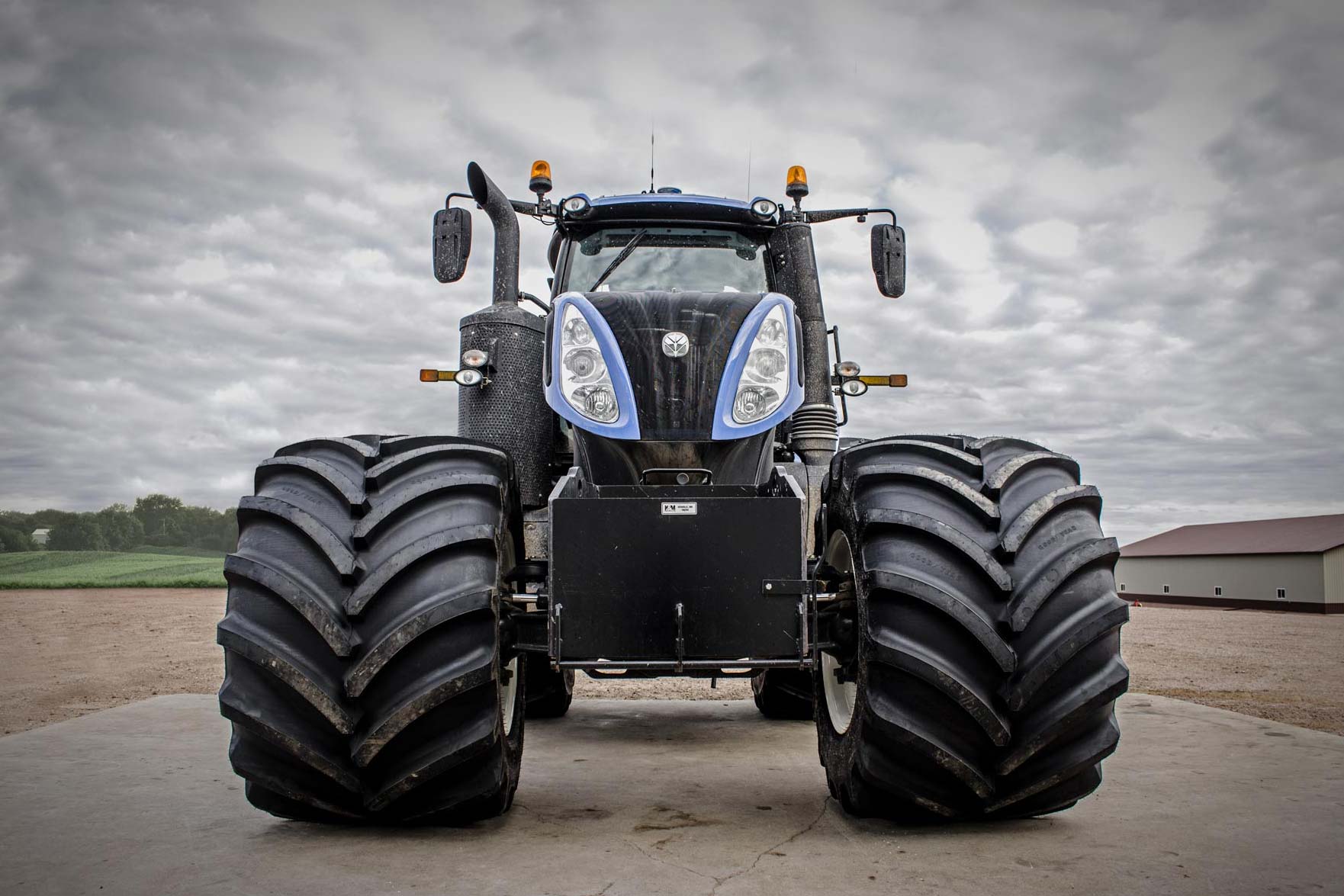
Goodyear LSW Super Singles
Could these super-wide tires be a fad? Goodyear’s LSW Super Singles have been gaining traction across the Midwest for a good reason.
In the spring of 2016, a farmer planted test plots in alternating rows with two identical New Holland T-8 255-hp tractors and 16-row Kinze 3600 planters. The purpose of the test plots was to measure compaction using an LSW Super Singles setup versus a traditional duals setup. The first tractor was fitted with Michelin 380/80R38 duals on the front (set at 20 psi) and 480/80R50 rears (set at 15 psi). The second tractor was fitted with Goodyear LSW1000/40R32 fronts (set at 12 psi) and Goodyear LSW1100/45R46 rears (set at 8 psi).
What did they find? Tire depth measurements were an average of 1.580 inches with the Goodyear LSW Super Singles. The Michelin duals showed an average depth measurement of 2.550 inches. There was a 20 percent increase in footprint with the super singles, which meant better flotation and less compaction. There was better germination and less stunting where the super singles had driven right over the row versus the pinch-row effect with the duals.
The end result: an increase of 5 bushels per acre on corn and 6 bushels per acre on soybeans. And in addition to having less compaction and higher yields, the farmer experienced less fuel consumption. According to Precision Inflation, for every 0.4 inches that your tire sinks into the soil, your fuel consumption increases by 10 percent.
In 2018, NTS Tire Supply partnered with AgRevival, a research company located in Gibbon, Minnesota, and 2 local farmers to study the impacts of planting with Goodyear LSW super singles as it relates to crop emergence, final stand establishment, compaction, plant and root development, and yield. The results from this study shed a massive amount of light on planting with Goodyear LSW super singles. Watch our video to see the results!
Based on these field trials and input from our own customers, we believe that LSW Super Singles will be around for a long time to come. And they may be your solution to reduce compaction and inflate your yields.
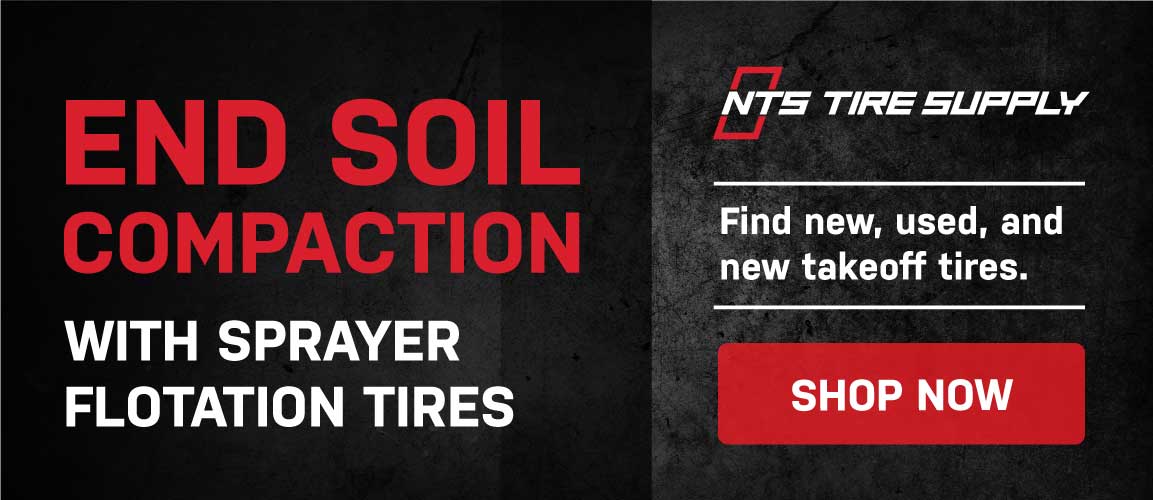
Traffic Control
Whether you have super singles, duals—an inflation system or no inflation system—the less you drive across your fields . . . the better for your yields. Match your equipment sizes so that you use the same tracks each time your make a pass across the field. And GPS guidance will make it possible to use the same tracks year after year.
Any of the above technologies—from LSW Super Singles to VF tires to a central inflation system—can help you to decrease compaction in your fields and see higher yields in the fall. We know that every farm is unique, which is why NTS Tire Supply is ready to help you find the best tires for your operation. Spring is one flip of the calendar page away, so now is the time to improve your tire setup and set your farm up for a more productive and efficient year. Give us a call or drop us a line today.

.png)
.jpg)




